Events
| Name | organizer | Where |
|---|---|---|
| MBCC “Doing Business with Mongolia seminar and Christmas Receptiom” Dec 10. 2025 London UK | MBCCI | London UK Goodman LLC |
NEWS
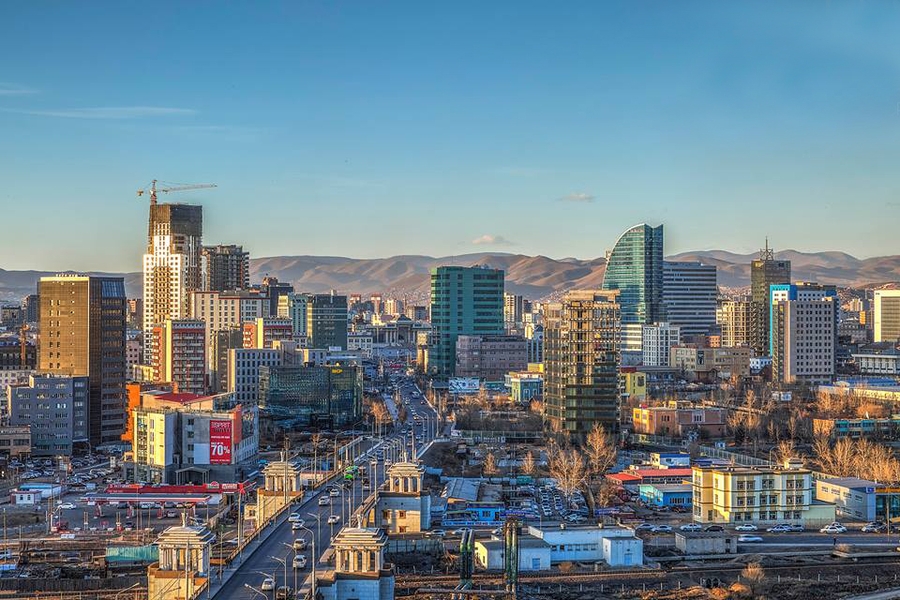
Zumtobel Group receives million-euro contract for infrastructure project from Mongolian government www.zumtobelgroup.com
Dornbirn, Austria / Ulaanbaatar, Mongolia – The international lighting group Zumtobel Group has secured a contract in the low double-digit million range with the Mongolian government for a comprehensive street lighting project in the north of Mongolia’s capital. Roughly 11,000 LED lights of the Thorn brand will be installed in previously unlit streets and squares, thus contributing to increasing the standard of living in public space. The aim is to use light to reduce the crime rate and enhance safety on a sustained basis. In addition, the provision of essential infrastructure such as lighting is a key factor for attracting companies and therefore serves the overall economic upswing in the region.
The Mongolian government therefore puts great expectations in the implementation of the Zumtobel Group’s lighting project in order to enable substantial improvements in everyday life for a previously disadvantaged population group. Around 200,000 people live in the provinces of Darkhan-Uul and Selenge in the north of Mongolia.
“Light is an essential element to improve the standards of living in public space. We are therefore pleased to be able to contribute a little to improving safety with our lighting project and, consequently, to Mongolia’s economic development in the long term,” Alfred Felder, CEO Zumtobel Group, commented on the successful conclusion of the project.
In this project, the Zumtobel Group offers a turn-key end-to-end solution comprising not only a high-quality lighting system, but also services including project management, planning, delivery, commissioning as well as training and regular maintenance. To date, the Zumtobel Group has not conducted any market development activities in Mongolia. A successful completion of the project will thus provide a suitable basis for any future activities in this market.
The project is financially secured by concessional financing (soft loan) of Oesterreichische Kontrollbank AG (OeKB). Soft loan financing is used to support the Austrian export industry. These development aid loans, which are granted on favourable terms in cooperation with the public sector, also serve the sustainable development of the target country.

Two arrested in Mongolia for illegal transportation of 500 kg of deer antlers www.xinhuanet.com
ULAN BATOR, July 22 (Xinhua) -- Mongolian police have arrested two men for the illegal transportation of 500 kilos of deer antlers from Khuvsgul province to the capital city of Ulan Bator, the country's National Police Agency (PLA) said Monday.
The two suspects were arrested last week while illegally transporting of 500 kilos of deer antlers at the 22nd checkpoint passing through the Emeelt road in the capital city's Songinokhairkhan district, the NPA said in a statement.
The case is under investigation, it added.
Under Mongolian law, a person convicted of poaching and killing endangered wild animals will be fined at least 10 million Mongolian tugriks (about 3,800 U.S. dollars) or punished by imprisonment of at least two years.
There are around 1,980 deers in Mongolia, according to a survey conducted in 2006.

Rio Tinto's Mongolia copper problems highlight frontier country risks: Russell www.business.financialpost.com
LAUNCESTON (Reuters) — Looking for a long-term bullish signal for copper? Then look no further than Rio Tinto’s struggles with the Oyu Tolgoi mine and expansion project in Mongolia.
The latest news about the giant copper-gold project is that the production from the underground expansion will be delayed by more than a year to between May 2022 and June 2023, and that costs have ballooned by another $1.9 billion.
The capital cost of the project is now estimated at $6.5 billion to $7.2 billion, up from an original estimate of $5.3 billion.
Rio Tinto, through its Turquoise Hill Resources subsidiary, owns 66% of the Oyu Tolgoi mine, which could become the world’s third-largest copper mine by production in 2025 under the current development plan.
What’s becoming more of an issue for the mine is that the Mongolian government owns the other 34%, and it appears that there is mounting disquiet in Ulaanbaatar that the landlocked country between Russia and China is getting a dud deal.
Mongolia’s parliament is set to approve measures that would terminate the 2015 agreement on the Oyu Tolgoi underground expansion, seeking to bring forward the time when it will receive dividend payments from the project, demand more transparency on copper prices and push for Rio Tinto to build a power plant.
Currently, Mongolia will only start to receive dividends around 2041, when its share of the debt for the project is repaid.
“For now, the Oyu Tolgoi agreement is not benefiting Mongolian citizens,” Battumur Baagaa, a member of the parliamentary working group scrutinizing the project, told Reuters. “It is good to attract foreign investment but that doesn’t mean foreign investment should only benefit the foreign side.”
The sentiment expressed in the above quote goes to the heart of Rio Tinto’s Mongolia problem, and indeed to any mining company considering a major investment in a developing, or frontier market.
BALANCING RISKS
The Oyu Tolgoi project is a country-changer for Mongolia, with its capital budget making it the biggest ever undertaken in the country, but it’s also more than half of the annual gross domestic product (GDP) of $13 billion.
By comparison, the $200 billion of spending on eight liquefied natural gas (LNG) projects in Australia over the past decade, the biggest investment in a single industry in the country’s history, represented about 17% of annual GDP.
A country such as Mongolia cannot afford the upfront cost for its stake in a project the size of Oyu Tolgoi, so it pays for its share by deferring dividends.
While this sounds like a good solution in theory, it also means that the government, and the populace, see the mine being built and start operations, but they don’t necessarily see the benefits flowing to them.
Rio Tinto makes the point on its website that from 2010 to the third quarter of 2018 it has spent “$8.3 billion in-country in the form of salaries, payments to Mongolian suppliers, taxes, and other payments to the government.”
The question is whether this is enough, and the answer the Mongolian authorities appear to be giving is no.
The obvious risk for Rio Tinto is that it spends billions of dollars on an investment that takes a longer period to deliver returns, or even in the worst case the asset is seized by the state.
This situation is increasingly being confronted by resource companies around the globe.
Mozambique and Tanzania are both keen to see international oil and gas companies spend billions of dollars developing an LNG industry in the east African neighbors.
But will the authorities remain satisfied with the terms that were initially struck when it becomes clear that the benefits to the government coffers will take some time to flow?
Increasingly, valuable deposits of commodities are in jurisdictions with higher country risk, but it doesn’t appear that project developers factor in the likelihood of having to renegotiate terms once vast amounts have already been spent.
It’s always going to be a fine balance between a company assessing how much of the value of the project it can afford to surrender to the host country, and the government of that country working out how hard they can squeeze before the company walks away and your investment reputation is severely damaged.
For the market, the risk is that much of the new supply of several key resources is likely to come from countries such as Mongolia, and the question is how likely is it that this resource is actually developed and delivers to plan. (Editing by Christian Schmollinger)
...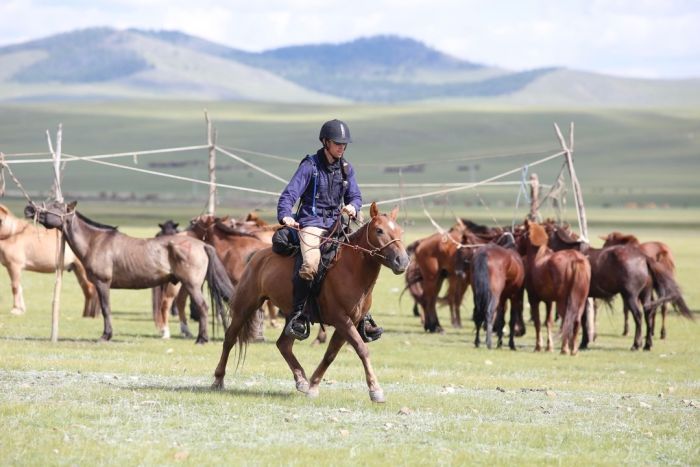
International military horse racing event to take place in Mongolia www.montsame.mn
Ulaanbaatar /MONTSAME/. The ‘Aravt’ international military horse racing event is to take place for the first time in Mongolia between August 3 and 8.
Organized in the framework of the International Army Games 2019, the event will have two stages at the General Training Center of the Armed Forces located in Tavan Tolgoi. With the military personnel of China and Zimbabwe as spectators, soldiers of eight countries such as Mongolia, Russia, Kazakhstan, and Kyrgyzstan will be competing in the horse racing event.
The team of the Mongolian Armed Forces is currently preparing for the event, while the team of Russia has recently finished their training at home and have arrived in Mongolia. The ‘Aravt’ international military horse racing event is unique for having the military personnel of eight countries race on Mongolian horseback.
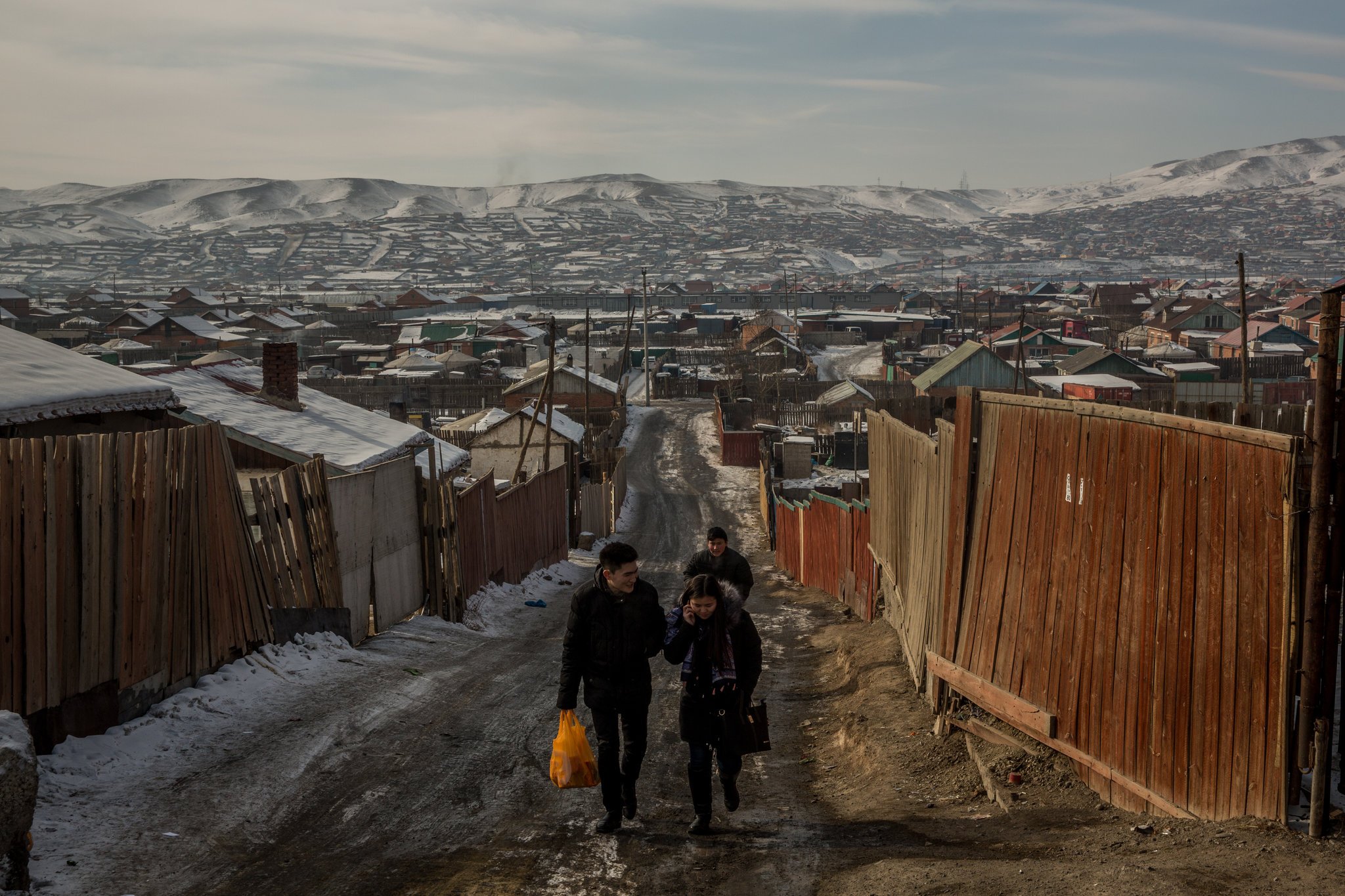
Projects worth EUR 12 million to be implemented www.montsame.mn
Ulaanbaatar /MONSTAME/ Within the Financial Cooperation Agreement between Mongolia and the Republic of Austria, the projects titled ‘Infrastructure Development - Songinokhairkhan’ and ‘Infrastructure Development – Bayanzurkh, Darkhan, and Selenge’ will be implemented from 2019 to 2021with a soft loan worth EUR 12 million from Austria.
On July 19, an agreement on implementation of the projects was signed by S.Magnaisuren, State Secretary of the Ministry of Construction and Urban Development and Alfred Felder, CEO of the contractor – Austria’s Zumtobel Lighting GmbH.
Under the projects, infrastructure development works will be carried out in the highly populated areas with poor infrastructure development including Songinokhairkhan and Bayanzurkh districts, Darkhan city, and Selenge aimag and streetlights with the latest energy efficient and bright lamps will be installed in ger areas of the remote bags and micro-districts.
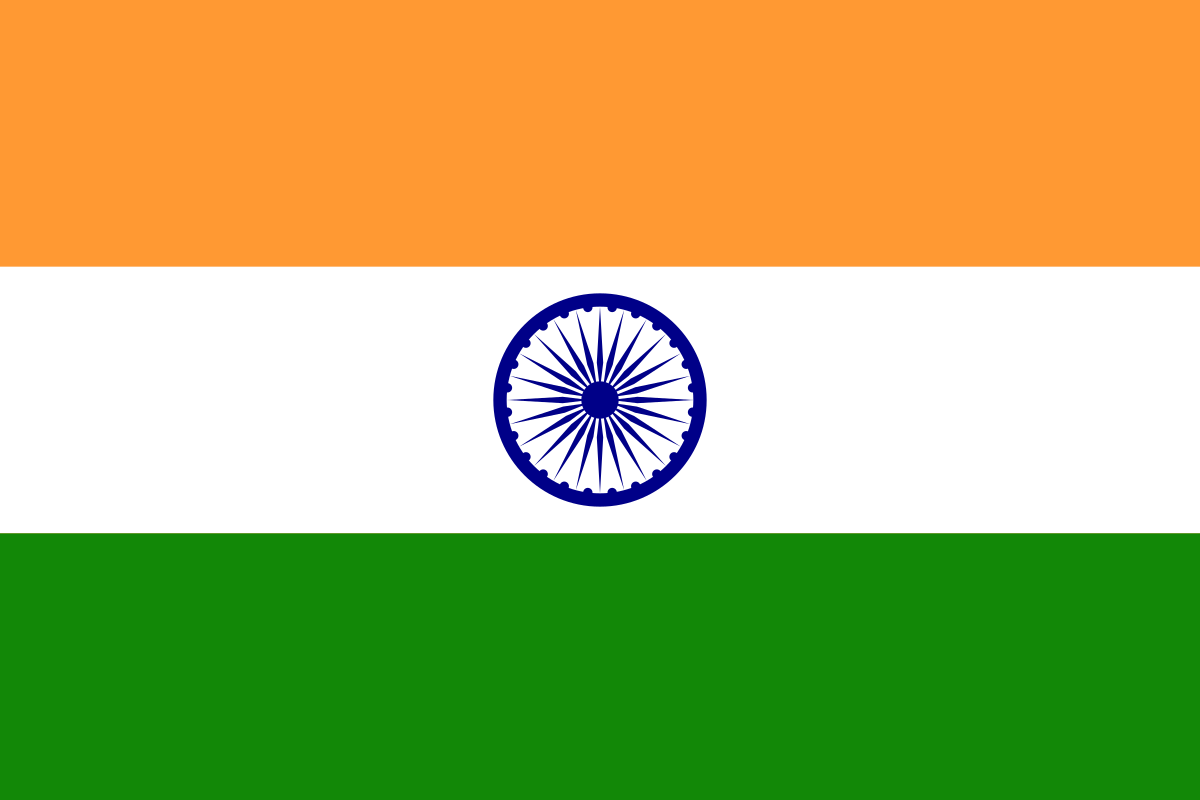
Chandrayaan-2: India set to re-attempt Moon mission launch www.bbc.com
India is set to re-attempt the launch of its second lunar mission a week after it halted the scheduled blast-off due to a technical snag.
Chandrayaan-2 will be launched at 14:43 local time (09:13 GMT) on Monday, space agency Isro said.
It added the spacecraft was ready "to take a billion dreams to the Moon - now stronger that ever before".
The space agency hopes the $150m (£120m) mission will be the first to land on the Moon's south pole.
The countdown on 15 July was stopped 56 minutes before launch after a "technical snag was observed in [the] launch vehicle system", according to Isro. Indian media have reported that a leak from a helium gas bottle in the cryogenic engine of the rocket was to blame.
Isro thanked people for supporting the mission despite the delay.
What is this mission all about?
India's first lunar mission in 2008 - Chandrayaan-1 - did not land on the lunar surface, but it carried out the first and most detailed search for water on the Moon using radars.
Chandrayaan-2 (Moon vehicle 2) will attempt a soft landing near the little-explored south pole of the Moon.
The mission will focus on the lunar surface, searching for water and minerals and measuring moonquakes, among other things.
India is using its most powerful rocket, the Geosynchronous Satellite Launch Vehicle Mark III (GSLV Mk-III), in this mission. It weighs 640 tonnes (almost 1.5 times the weight of a fully-loaded 747 jumbo jet) and at 44 metres (144ft) is as high as a 14-storey building.
The spacecraft weighs 2.379kg (5.244lb) and has three distinct parts: an orbiter, a lander and a rover.
The orbiter, which has a mission life of a year, will take images of the lunar surface, and "sniff" the tenuous atmosphere.
The women scientists who took India into space
Israeli spacecraft crashes on Moon
Is India ready to send someone to space?
The lander (named Vikram, after the founder of Isro) weighs about half as much, and carries within its belly a 27kg Moon rover with instruments to analyse the lunar soil. In its 14-day life, the rover (called Pragyan - wisdom in Sanskrit) can travel up to a half a kilometre from the lander and will send data and images back to Earth for analysis.
"India can hope to get the first selfies from the lunar surface once the rover gets on its job," Dr K Sivan, the Isro chief, said before the first launch attempt.
The launch is only the beginning of a 384,000km (239,000-mile) journey - Isro is hoping the lander will touch down on the Moon on 6 or 7 September.
The space agency has chosen a circuitous route to take advantage of the Earth's gravity, which will help slingshot the satellite towards the Moon. India does not have a rocket powerful enough to hurl Chandrayaan-2 on a direct path.
"There will be 15 terrifying minutes for scientists once the lander is released and is hurled towards the south pole of the Moon," Dr Sivan said.
He explained that those who had been controlling the spacecraft until then would have no role to play in those crucial moments. The actual landing, he added, was an autonomous operation dependent on all systems performing as they should. Otherwise, the lander could crash into the lunar surface.
Earlier this year, Israel's first Moon mission crash-landed while attempting to touch down.
Who is on the team?
Nearly 1,000 engineers and scientists have worked on this mission. But for the first time, Isro has chosen women to lead an interplanetary expedition.
Two women are steering India's journey to the Moon. While programme director Muthaya Vanitha has nurtured Chandrayaan-2 over the years, it will be navigated by Ritu Karidhal.
...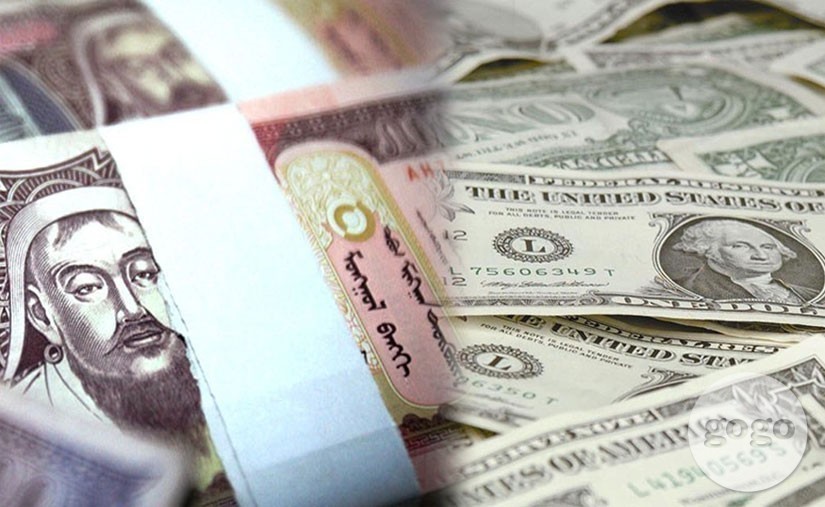
National currency in circulation reaches MNT 937.1 billion www.montsame.mn
Ulaanbaatar /MONTSAME/ The money supply reached MNT 20.2 trillion at the end of June 2019, showing a decrease of 0.3 percent from the previous month, while it shows an increase of MNT 16.7 percent from the same period of previous year.
At the end of June 2019, the national currency in circulation reached MNT 937.1 billion, showing a decrease of MNT 2.6 billion or 0.3 percent from the previous month, while it shows an increase of MNT 6.0 billion or 0.6 percent from the same period of previous year.
At the end of June 2019, the amount of outstanding loan to entities, enterprises and citizens amounted MNT 18.2 trillion, increased by 1.3 percent from the previous month and by 18.3 percent from the same period of previous year.
At the end of June 2019, the non-performing loans in banking system amounted MNT 1.9 trillion, showing a decrease of 1.3 percent from the previous month while it shows an increase of 45.3 percent from the same period of previous year. The non-performing loans in the banking system makes up to 10.5 percent of total loans, showing an increase of 1.9 percentage points from the same period of previous year.
In the first half of 2019, 377.0 million pieces of securities worth of MNT 108.5 billion were traded at the national stock market, which is increased by 37.7 percent compared to the same period of previous year.
In June 2019, 34.2 million pieces of securities worth of MNT 21.9 billion were traded at the national stock market, which is increased by 65.8 percent compared to the same period of previous year.
Monthly average exchange rate of MNT to US dollars announced from Central Bank of Mongolia in June 2019 was MNT 2 654.47 to one USD, which is depreciated by 9.1 percent from the same period of previous year and by 0.4 percent from the previous month.
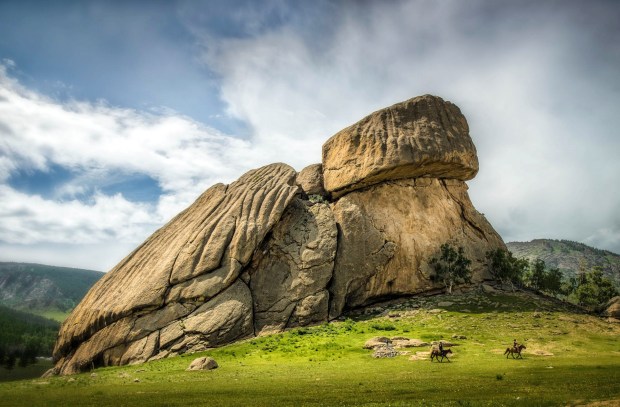
Mongolia receives 247.3 thousand foreign tourists in the first half of 2019 www.montsame.mn
Ulaanbaatar /MONTSAME/ In the first half of 2019, 2.8 million passengers (double counting) have crossed the border of Mongolia, increased by 55.5 thousand or 2.0 percent compared to the same period of previous year.
In the first half of 2019, 247.3 thousand foreign passengers have entered, increased by 9.2 thousand or 3.9 percent compared to the same period of previous year. Of those foreign passengers, 86.4 percent were stayed up to 30 days, 11.6 percent were stayed for 90 days or more, 2.0 percent were stayed for 30 to 90 days.
By the purpose for entry of the foreign passengers, 217.4 thousand or 87.9 percent entered for tourism purposes, increased by 14.8 thousand or 7.3 percent compared to the first half of 2018, and there were 29.9 thousand or 12.1 percent entered for business, study and permanent residence purposes.
From the first half of 2018, the number of tourists from the Socialist Republic of Viet Nam is increased by 191 or 86.4 percent, tourists from People's Republic of China, Hong Kong Special Administrative Region increased by 558 or 45.6 percent, tourists from Malaysia increased by 190 or 35.1 percent, tourists from the Republic of Austria increased by 119 or 33.0 percent, whereas tourists from the Republic of Turkey decreased by 698 or 52.3 percent, tourists from Ukraine decreased by 121 or 16.4 percent and tourists from Canada decreased by 132 by 8.4 percent.
Among all the inbound foreign passengers, 36.4 percent were Chinese, 24.3 percent were Russian, 12.1 percent were South Korean, 3.7 percent were Japanese, 3.4 percent were American, 2.4 percent were Kazakhs and 17.7 were other nationalities.
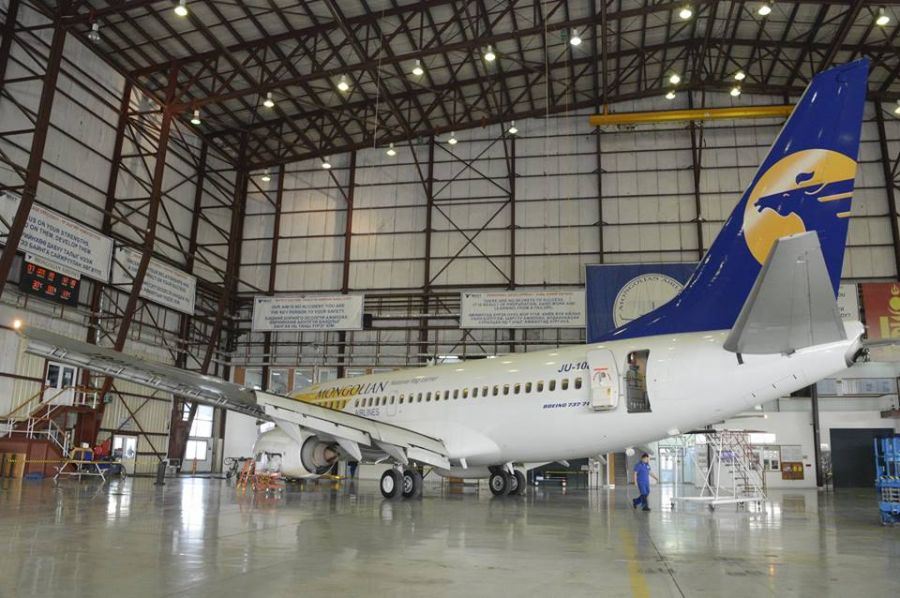
Revenue of rail and road transport increases www.montsame.mn
Ulaanbaatar /MONTSAME/ In the first half of 2019, 33.2 million tons of freight and 90.9 million passengers (double counting) were carried in total by all type of transport. Compared to the same period of previous year, the carried freight decreased by 0.5 percent and the number of carried passengers decreased by 10.5 percent.
The revenue from all type of transport reached MNT 846.4 billion, increased by 8.9 percent compared to the same period of previous year.
In reference period, 20.0 million tons of freight and 89.2 million passengers (double counting) were carried by road transport. The revenue from road transport reached MNT 315.9 billion, increased by 2.7 percent compared to the same period of previous year.
In reference period, 13.2 million tons of freight and 1.2 million passengers (double counting) were carried by railway transport. Compared to the same period of previous year, carried freight increased by 8.0 percent, whereas the number of carried passengers decreased by 3.2 percent.
In June 2019, 2.2 million tons of freight and 249.5 thousand passengers transported through railway transport. The carried freight increased by 0.7 percent and the number of passengers increased by 17.5 percent compared to the previous month.
In the first half of 2019, the revenue from railway transport reached MNT 335.6 billion, increased by 38.2 percent compared to the same period of previous year.
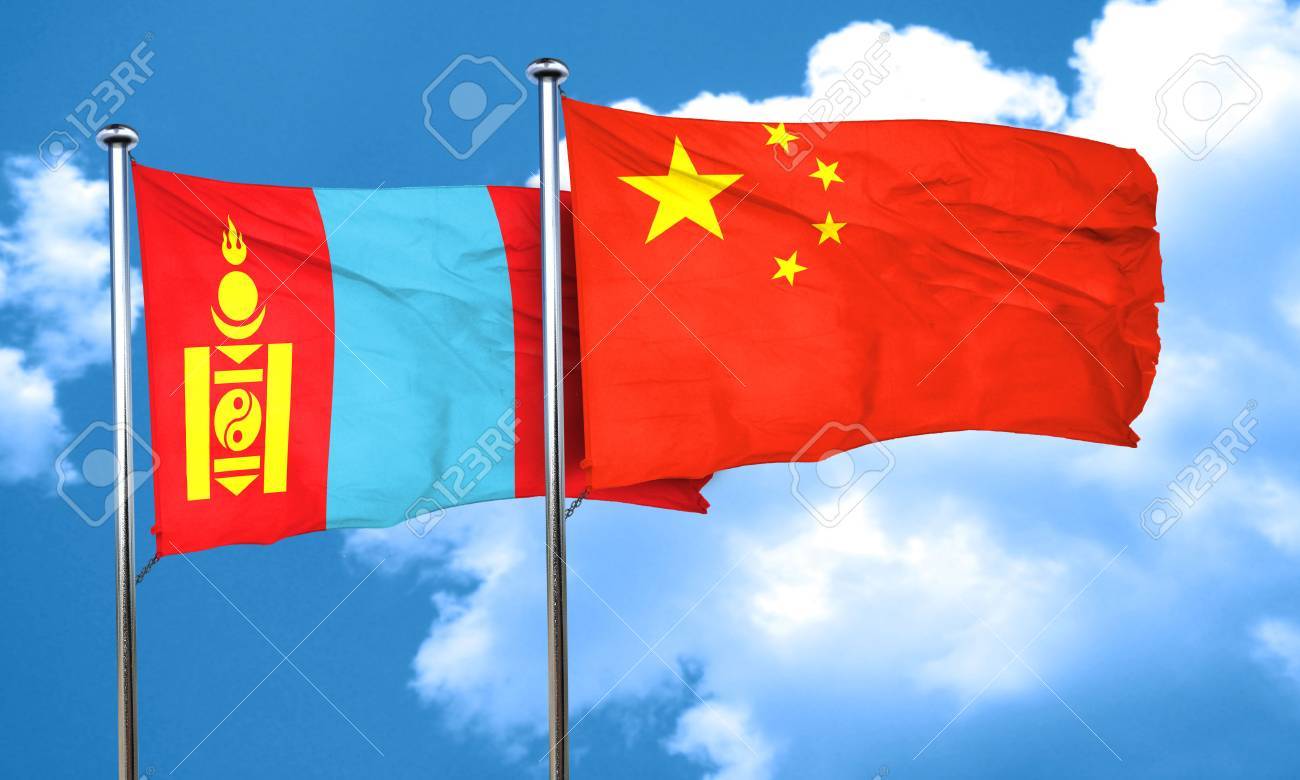
Vice President of China visits Mongolia www.montsame.mn
Ulaanbaatar /MONTSAME/ On the occasion of the 70th anniversary of the establishment of diplomatic relations between Mongolia and the People’s Republic of China, Vice President of China Wang Qisan, paid a visit to Mongolia at the invitation of Prime Minister U.Khurelsukh on July 10-12.
On July 10, Vice President Wang Qisan paid a courtesy call on President Kh.Battulga, held meetings with the Prime Minister U.Khurelsukh and the Speaker of the State Great Khural G.Zandanshatar, discussing issues of bilateral cooperation and joint projects being implemented within the frames of celebration of the 70th anniversary of the establishment of diplomatic relations between Mongolia and China.
At the meeting with Prime Minister, Mr. Wang Qisan noted that China has always respected state sovereignty, territorial integrity and development path of Mongolia and expressed interest in mutually beneficial cooperation in politics, economy, humanity and inter-territorial cooperation.
The parties emphasized that in the past 70 years the bilateral relations faced many challenges and the countries reached Comprehensive Strategic Partnership as a result of mutual efforts, expressing willingness to focus on enrichment and sustainable development of the strategic partnership.
The sides also highlighted that a number of high level visits and projects covering all fields of bilateral cooperation are being implemented within the framework of celebration of the 70th anniversary of diplomatic relations.
Prime Minister U.Khurelsukh mentioned that the Vice President’s visit is coinciding with the National Naadam holiday and invited to visit the celebration ceremony.
Vice President of China Wang Qisan and PM U.Khurelsukh attended the signing ceremony of construction project agreement for the Development Center for Children with Disabilities. Moreover, cooperation agreements between Erenhot city of Inner Mongolia and Zamyn-Uud soum of Dornogobi aimag, Darhan Muminggan United Banner of Baotou city of Inner Mongolia and Sainshand city of Dornogobi aimag were signed in their presence.
At the meeting with Speaker G.Zandanshatar, Mr. Wang Qisan emphasized the importance of reaching the full potential and enriching the Comprehensive partnership with new content. He touched upon the topics of strengthening mutual political trust, promoting relations between the legislative bodies, exchanging experience in governance and legislation, achieving better results in trade and economic relations, enhancing the relationship between people and organizations and activating humanitarian exchange.
Vice president also noted that aligning the development strategies within the ‘Belt and Road’ program will help gain new achievements and benefit both countries.
During the meeting, Speaker emphasized the importance of elimination of trade and non-trade barriers in trade and economic cooperation. Mr. G.Zandanshatar also requested the Vice President to take into account the possibilities to finance the establishment of free economic zone in Zamyn-Uud and Erenhot and construction of Altanbulag-Zamyn-Uud international highway through development loan and concession from the swap line between the People's Bank of China and Bank of Mongolia.
During his visit, Mr. Wang Qisan visited the National Museum and attended the opening ceremony of Naadam festival.
...- «
- 1
- 2
- 3
- 4
- 5
- 6
- 7
- 8
- 9
- 10
- 11
- 12
- 13
- 14
- 15
- 16
- 17
- 18
- 19
- 20
- 21
- 22
- 23
- 24
- 25
- 26
- 27
- 28
- 29
- 30
- 31
- 32
- 33
- 34
- 35
- 36
- 37
- 38
- 39
- 40
- 41
- 42
- 43
- 44
- 45
- 46
- 47
- 48
- 49
- 50
- 51
- 52
- 53
- 54
- 55
- 56
- 57
- 58
- 59
- 60
- 61
- 62
- 63
- 64
- 65
- 66
- 67
- 68
- 69
- 70
- 71
- 72
- 73
- 74
- 75
- 76
- 77
- 78
- 79
- 80
- 81
- 82
- 83
- 84
- 85
- 86
- 87
- 88
- 89
- 90
- 91
- 92
- 93
- 94
- 95
- 96
- 97
- 98
- 99
- 100
- 101
- 102
- 103
- 104
- 105
- 106
- 107
- 108
- 109
- 110
- 111
- 112
- 113
- 114
- 115
- 116
- 117
- 118
- 119
- 120
- 121
- 122
- 123
- 124
- 125
- 126
- 127
- 128
- 129
- 130
- 131
- 132
- 133
- 134
- 135
- 136
- 137
- 138
- 139
- 140
- 141
- 142
- 143
- 144
- 145
- 146
- 147
- 148
- 149
- 150
- 151
- 152
- 153
- 154
- 155
- 156
- 157
- 158
- 159
- 160
- 161
- 162
- 163
- 164
- 165
- 166
- 167
- 168
- 169
- 170
- 171
- 172
- 173
- 174
- 175
- 176
- 177
- 178
- 179
- 180
- 181
- 182
- 183
- 184
- 185
- 186
- 187
- 188
- 189
- 190
- 191
- 192
- 193
- 194
- 195
- 196
- 197
- 198
- 199
- 200
- 201
- 202
- 203
- 204
- 205
- 206
- 207
- 208
- 209
- 210
- 211
- 212
- 213
- 214
- 215
- 216
- 217
- 218
- 219
- 220
- 221
- 222
- 223
- 224
- 225
- 226
- 227
- 228
- 229
- 230
- 231
- 232
- 233
- 234
- 235
- 236
- 237
- 238
- 239
- 240
- 241
- 242
- 243
- 244
- 245
- 246
- 247
- 248
- 249
- 250
- 251
- 252
- 253
- 254
- 255
- 256
- 257
- 258
- 259
- 260
- 261
- 262
- 263
- 264
- 265
- 266
- 267
- 268
- 269
- 270
- 271
- 272
- 273
- 274
- 275
- 276
- 277
- 278
- 279
- 280
- 281
- 282
- 283
- 284
- 285
- 286
- 287
- 288
- 289
- 290
- 291
- 292
- 293
- 294
- 295
- 296
- 297
- 298
- 299
- 300
- 301
- 302
- 303
- 304
- 305
- 306
- 307
- 308
- 309
- 310
- 311
- 312
- 313
- 314
- 315
- 316
- 317
- 318
- 319
- 320
- 321
- 322
- 323
- 324
- 325
- 326
- 327
- 328
- 329
- 330
- 331
- 332
- 333
- 334
- 335
- 336
- 337
- 338
- 339
- 340
- 341
- 342
- 343
- 344
- 345
- 346
- 347
- 348
- 349
- 350
- 351
- 352
- 353
- 354
- 355
- 356
- 357
- 358
- 359
- 360
- 361
- 362
- 363
- 364
- 365
- 366
- 367
- 368
- 369
- 370
- 371
- 372
- 373
- 374
- 375
- 376
- 377
- 378
- 379
- 380
- 381
- 382
- 383
- 384
- 385
- 386
- 387
- 388
- 389
- 390
- 391
- 392
- 393
- 394
- 395
- 396
- 397
- 398
- 399
- 400
- 401
- 402
- 403
- 404
- 405
- 406
- 407
- 408
- 409
- 410
- 411
- 412
- 413
- 414
- 415
- 416
- 417
- 418
- 419
- 420
- 421
- 422
- 423
- 424
- 425
- 426
- 427
- 428
- 429
- 430
- 431
- 432
- 433
- 434
- 435
- 436
- 437
- 438
- 439
- 440
- 441
- 442
- 443
- 444
- 445
- 446
- 447
- 448
- 449
- 450
- 451
- 452
- 453
- 454
- 455
- 456
- 457
- 458
- 459
- 460
- 461
- 462
- 463
- 464
- 465
- 466
- 467
- 468
- 469
- 470
- 471
- 472
- 473
- 474
- 475
- 476
- 477
- 478
- 479
- 480
- 481
- 482
- 483
- 484
- 485
- 486
- 487
- 488
- 489
- 490
- 491
- 492
- 493
- 494
- 495
- 496
- 497
- 498
- 499
- 500
- 501
- 502
- 503
- 504
- 505
- 506
- 507
- 508
- 509
- 510
- 511
- 512
- 513
- 514
- 515
- 516
- 517
- 518
- 519
- 520
- 521
- 522
- 523
- 524
- 525
- 526
- 527
- 528
- 529
- 530
- 531
- 532
- 533
- 534
- 535
- 536
- 537
- 538
- 539
- 540
- 541
- 542
- 543
- 544
- 545
- 546
- 547
- 548
- 549
- 550
- 551
- 552
- 553
- 554
- 555
- 556
- 557
- 558
- 559
- 560
- 561
- 562
- 563
- 564
- 565
- 566
- 567
- 568
- 569
- 570
- 571
- 572
- 573
- 574
- 575
- 576
- 577
- 578
- 579
- 580
- 581
- 582
- 583
- 584
- 585
- 586
- 587
- 588
- 589
- 590
- 591
- 592
- 593
- 594
- 595
- 596
- 597
- 598
- 599
- 600
- 601
- 602
- 603
- 604
- 605
- 606
- 607
- 608
- 609
- 610
- 611
- 612
- 613
- 614
- 615
- 616
- 617
- 618
- 619
- 620
- 621
- 622
- 623
- 624
- 625
- 626
- 627
- 628
- 629
- 630
- 631
- 632
- 633
- 634
- 635
- 636
- 637
- 638
- 639
- 640
- 641
- 642
- 643
- 644
- 645
- 646
- 647
- 648
- 649
- 650
- 651
- 652
- 653
- 654
- 655
- 656
- 657
- 658
- 659
- 660
- 661
- 662
- 663
- 664
- 665
- 666
- 667
- 668
- 669
- 670
- 671
- 672
- 673
- 674
- 675
- 676
- 677
- 678
- 679
- 680
- 681
- 682
- 683
- 684
- 685
- 686
- 687
- 688
- 689
- 690
- 691
- 692
- 693
- 694
- 695
- 696
- 697
- 698
- 699
- 700
- 701
- 702
- 703
- 704
- 705
- 706
- 707
- 708
- 709
- 710
- 711
- 712
- 713
- 714
- 715
- 716
- 717
- 718
- 719
- 720
- 721
- 722
- 723
- 724
- 725
- 726
- 727
- 728
- 729
- 730
- 731
- 732
- 733
- 734
- 735
- 736
- 737
- 738
- 739
- 740
- 741
- 742
- 743
- 744
- 745
- 746
- 747
- 748
- 749
- 750
- 751
- 752
- 753
- 754
- 755
- 756
- 757
- 758
- 759
- 760
- 761
- 762
- 763
- 764
- 765
- 766
- 767
- 768
- 769
- 770
- 771
- 772
- 773
- 774
- 775
- 776
- 777
- 778
- 779
- 780
- 781
- 782
- 783
- 784
- 785
- 786
- 787
- 788
- 789
- 790
- 791
- 792
- 793
- 794
- 795
- 796
- 797
- 798
- 799
- 800
- 801
- 802
- 803
- 804
- 805
- 806
- 807
- 808
- 809
- 810
- 811
- 812
- 813
- 814
- 815
- 816
- 817
- 818
- 819
- 820
- 821
- 822
- 823
- 824
- 825
- 826
- 827
- 828
- 829
- 830
- 831
- 832
- 833
- 834
- 835
- 836
- 837
- 838
- 839
- 840
- 841
- 842
- 843
- 844
- 845
- 846
- 847
- 848
- 849
- 850
- 851
- 852
- 853
- 854
- 855
- 856
- 857
- 858
- 859
- 860
- 861
- 862
- 863
- 864
- 865
- 866
- 867
- 868
- 869
- 870
- 871
- 872
- 873
- 874
- 875
- 876
- 877
- 878
- 879
- 880
- 881
- 882
- 883
- 884
- 885
- 886
- 887
- 888
- 889
- 890
- 891
- 892
- 893
- 894
- 895
- 896
- 897
- 898
- 899
- 900
- 901
- 902
- 903
- 904
- 905
- 906
- 907
- 908
- 909
- 910
- 911
- 912
- 913
- 914
- 915
- 916
- 917
- 918
- 919
- 920
- 921
- 922
- 923
- 924
- 925
- 926
- 927
- 928
- 929
- 930
- 931
- 932
- 933
- 934
- 935
- 936
- 937
- 938
- 939
- 940
- 941
- 942
- 943
- 944
- 945
- 946
- 947
- 948
- 949
- 950
- 951
- 952
- 953
- 954
- 955
- 956
- 957
- 958
- 959
- 960
- 961
- 962
- 963
- 964
- 965
- 966
- 967
- 968
- 969
- 970
- 971
- 972
- 973
- 974
- 975
- 976
- 977
- 978
- 979
- 980
- 981
- 982
- 983
- 984
- 985
- 986
- 987
- 988
- 989
- 990
- 991
- 992
- 993
- 994
- 995
- 996
- 997
- 998
- 999
- 1000
- 1001
- 1002
- 1003
- 1004
- 1005
- 1006
- 1007
- 1008
- 1009
- 1010
- 1011
- 1012
- 1013
- 1014
- 1015
- 1016
- 1017
- 1018
- 1019
- 1020
- 1021
- 1022
- 1023
- 1024
- 1025
- 1026
- 1027
- 1028
- 1029
- 1030
- 1031
- 1032
- 1033
- 1034
- 1035
- 1036
- 1037
- 1038
- 1039
- 1040
- 1041
- 1042
- 1043
- 1044
- 1045
- 1046
- 1047
- 1048
- 1049
- 1050
- 1051
- 1052
- 1053
- 1054
- 1055
- 1056
- 1057
- 1058
- 1059
- 1060
- 1061
- 1062
- 1063
- 1064
- 1065
- 1066
- 1067
- 1068
- 1069
- 1070
- 1071
- 1072
- 1073
- 1074
- 1075
- 1076
- 1077
- 1078
- 1079
- 1080
- 1081
- 1082
- 1083
- 1084
- 1085
- 1086
- 1087
- 1088
- 1089
- 1090
- 1091
- 1092
- 1093
- 1094
- 1095
- 1096
- 1097
- 1098
- 1099
- 1100
- 1101
- 1102
- 1103
- 1104
- 1105
- 1106
- 1107
- 1108
- 1109
- 1110
- 1111
- 1112
- 1113
- 1114
- 1115
- 1116
- 1117
- 1118
- 1119
- 1120
- 1121
- 1122
- 1123
- 1124
- 1125
- 1126
- 1127
- 1128
- 1129
- 1130
- 1131
- 1132
- 1133
- 1134
- 1135
- 1136
- 1137
- 1138
- 1139
- 1140
- 1141
- 1142
- 1143
- 1144
- 1145
- 1146
- 1147
- 1148
- 1149
- 1150
- 1151
- 1152
- 1153
- 1154
- 1155
- 1156
- 1157
- 1158
- 1159
- 1160
- 1161
- 1162
- 1163
- 1164
- 1165
- 1166
- 1167
- 1168
- 1169
- 1170
- 1171
- 1172
- 1173
- 1174
- 1175
- 1176
- 1177
- 1178
- 1179
- 1180
- 1181
- 1182
- 1183
- 1184
- 1185
- 1186
- 1187
- 1188
- 1189
- 1190
- 1191
- 1192
- 1193
- 1194
- 1195
- 1196
- 1197
- 1198
- 1199
- 1200
- 1201
- 1202
- 1203
- 1204
- 1205
- 1206
- 1207
- 1208
- 1209
- 1210
- 1211
- 1212
- 1213
- 1214
- 1215
- 1216
- 1217
- 1218
- 1219
- 1220
- 1221
- 1222
- 1223
- 1224
- 1225
- 1226
- 1227
- 1228
- 1229
- 1230
- 1231
- 1232
- 1233
- 1234
- 1235
- 1236
- 1237
- 1238
- 1239
- 1240
- 1241
- 1242
- 1243
- 1244
- 1245
- 1246
- 1247
- 1248
- 1249
- 1250
- 1251
- 1252
- 1253
- 1254
- 1255
- 1256
- 1257
- 1258
- 1259
- 1260
- 1261
- 1262
- 1263
- 1264
- 1265
- 1266
- 1267
- 1268
- 1269
- 1270
- 1271
- 1272
- 1273
- 1274
- 1275
- 1276
- 1277
- 1278
- 1279
- 1280
- 1281
- 1282
- 1283
- 1284
- 1285
- 1286
- 1287
- 1288
- 1289
- 1290
- 1291
- 1292
- 1293
- 1294
- 1295
- 1296
- 1297
- 1298
- 1299
- 1300
- 1301
- 1302
- 1303
- 1304
- 1305
- 1306
- 1307
- 1308
- 1309
- 1310
- 1311
- 1312
- 1313
- 1314
- 1315
- 1316
- 1317
- 1318
- 1319
- 1320
- 1321
- 1322
- 1323
- 1324
- 1325
- 1326
- 1327
- 1328
- 1329
- 1330
- 1331
- 1332
- 1333
- 1334
- 1335
- 1336
- 1337
- 1338
- 1339
- 1340
- 1341
- 1342
- 1343
- 1344
- 1345
- 1346
- 1347
- 1348
- 1349
- 1350
- 1351
- 1352
- 1353
- 1354
- 1355
- 1356
- 1357
- 1358
- 1359
- 1360
- 1361
- 1362
- 1363
- 1364
- 1365
- 1366
- 1367
- 1368
- 1369
- 1370
- 1371
- 1372
- 1373
- 1374
- 1375
- 1376
- 1377
- 1378
- 1379
- 1380
- 1381
- 1382
- 1383
- 1384
- 1385
- 1386
- 1387
- 1388
- 1389
- 1390
- 1391
- 1392
- 1393
- 1394
- 1395
- 1396
- 1397
- 1398
- 1399
- 1400
- 1401
- 1402
- 1403
- 1404
- 1405
- 1406
- 1407
- 1408
- 1409
- 1410
- 1411
- 1412
- 1413
- 1414
- 1415
- 1416
- 1417
- 1418
- 1419
- 1420
- 1421
- 1422
- 1423
- 1424
- 1425
- 1426
- 1427
- 1428
- 1429
- 1430
- 1431
- 1432
- 1433
- 1434
- 1435
- 1436
- 1437
- 1438
- 1439
- 1440
- 1441
- 1442
- 1443
- 1444
- 1445
- 1446
- 1447
- 1448
- 1449
- 1450
- 1451
- 1452
- 1453
- 1454
- 1455
- 1456
- 1457
- 1458
- 1459
- 1460
- 1461
- 1462
- 1463
- 1464
- 1465
- 1466
- 1467
- 1468
- 1469
- 1470
- 1471
- 1472
- 1473
- 1474
- 1475
- 1476
- 1477
- 1478
- 1479
- 1480
- 1481
- 1482
- 1483
- 1484
- 1485
- 1486
- 1487
- 1488
- 1489
- 1490
- 1491
- 1492
- 1493
- 1494
- 1495
- 1496
- 1497
- 1498
- 1499
- 1500
- 1501
- 1502
- 1503
- 1504
- 1505
- 1506
- 1507
- 1508
- 1509
- 1510
- 1511
- 1512
- 1513
- 1514
- 1515
- 1516
- 1517
- 1518
- 1519
- 1520
- 1521
- 1522
- 1523
- 1524
- 1525
- 1526
- 1527
- 1528
- 1529
- 1530
- 1531
- 1532
- 1533
- 1534
- 1535
- 1536
- 1537
- 1538
- 1539
- 1540
- 1541
- 1542
- 1543
- 1544
- 1545
- 1546
- 1547
- 1548
- 1549
- 1550
- 1551
- 1552
- 1553
- 1554
- 1555
- 1556
- 1557
- 1558
- 1559
- 1560
- 1561
- 1562
- 1563
- 1564
- 1565
- 1566
- 1567
- 1568
- 1569
- 1570
- 1571
- 1572
- 1573
- 1574
- 1575
- 1576
- 1577
- 1578
- 1579
- 1580
- 1581
- 1582
- 1583
- 1584
- 1585
- 1586
- 1587
- 1588
- 1589
- 1590
- 1591
- 1592
- 1593
- 1594
- 1595
- 1596
- 1597
- 1598
- 1599
- 1600
- 1601
- 1602
- 1603
- 1604
- 1605
- 1606
- 1607
- 1608
- 1609
- 1610
- 1611
- 1612
- 1613
- 1614
- 1615
- 1616
- 1617
- 1618
- 1619
- 1620
- 1621
- 1622
- 1623
- 1624
- 1625
- 1626
- 1627
- 1628
- 1629
- 1630
- 1631
- 1632
- 1633
- 1634
- 1635
- 1636
- 1637
- 1638
- 1639
- 1640
- 1641
- 1642
- 1643
- 1644
- 1645
- 1646
- 1647
- 1648
- 1649
- 1650
- 1651
- 1652
- 1653
- 1654
- 1655
- 1656
- 1657
- 1658
- 1659
- 1660
- 1661
- 1662
- 1663
- 1664
- 1665
- 1666
- 1667
- 1668
- 1669
- 1670
- 1671
- 1672
- 1673
- 1674
- 1675
- 1676
- 1677
- 1678
- 1679
- 1680
- 1681
- 1682
- 1683
- 1684
- 1685
- 1686
- 1687
- 1688
- 1689
- 1690
- 1691
- 1692
- 1693
- 1694
- 1695
- 1696
- 1697
- 1698
- 1699
- 1700
- 1701
- 1702
- 1703
- 1704
- 1705
- 1706
- 1707
- 1708
- 1709
- 1710
- 1711
- 1712
- 1713
- 1714
- »






